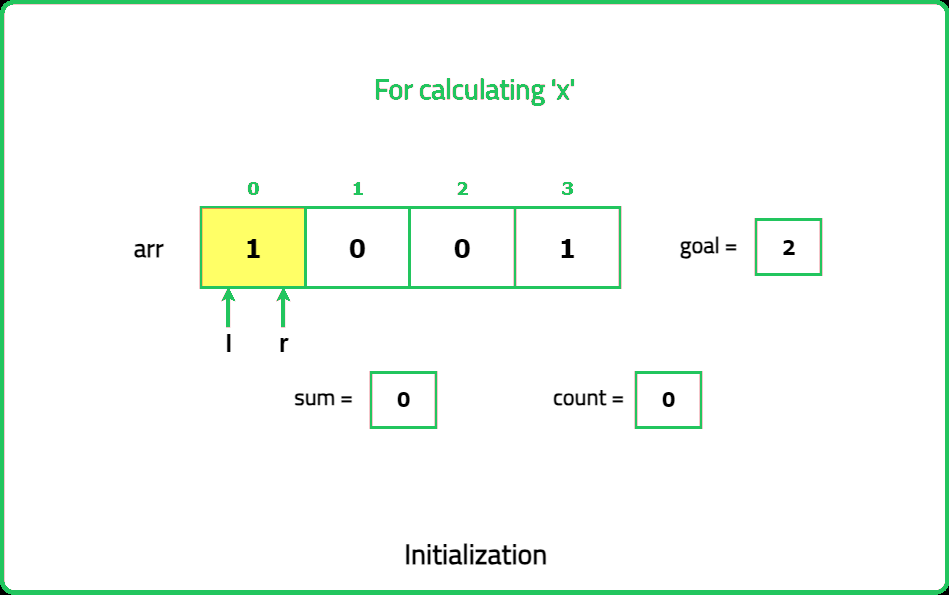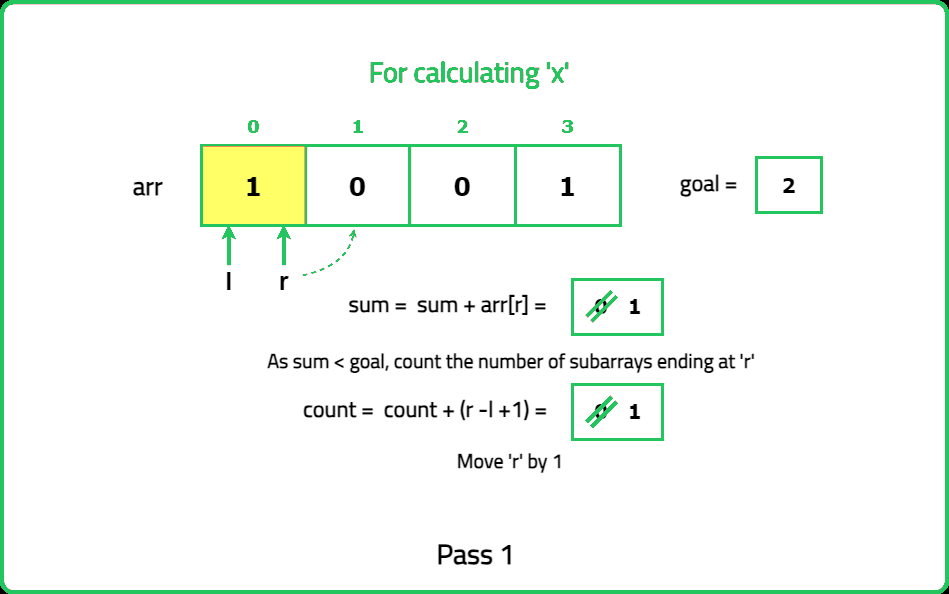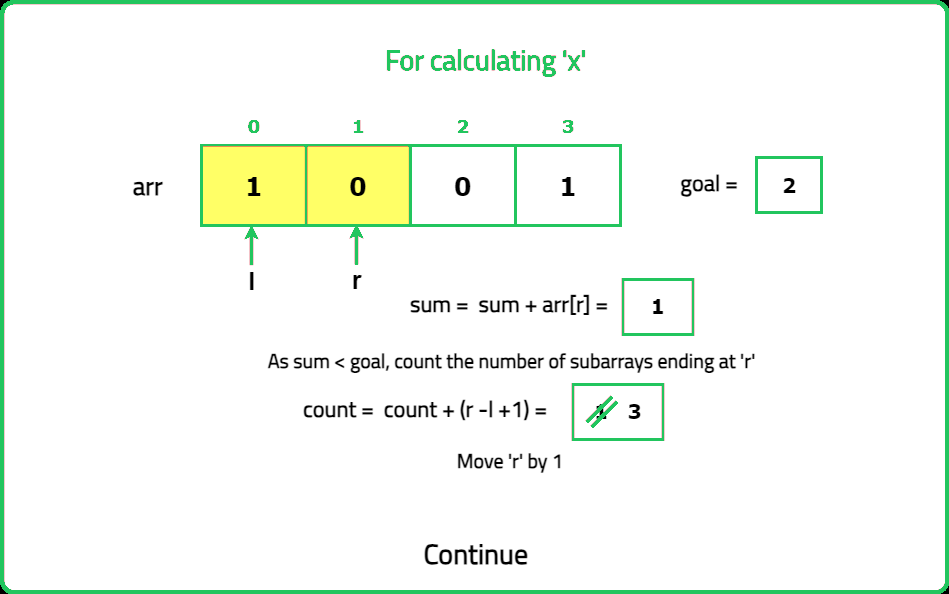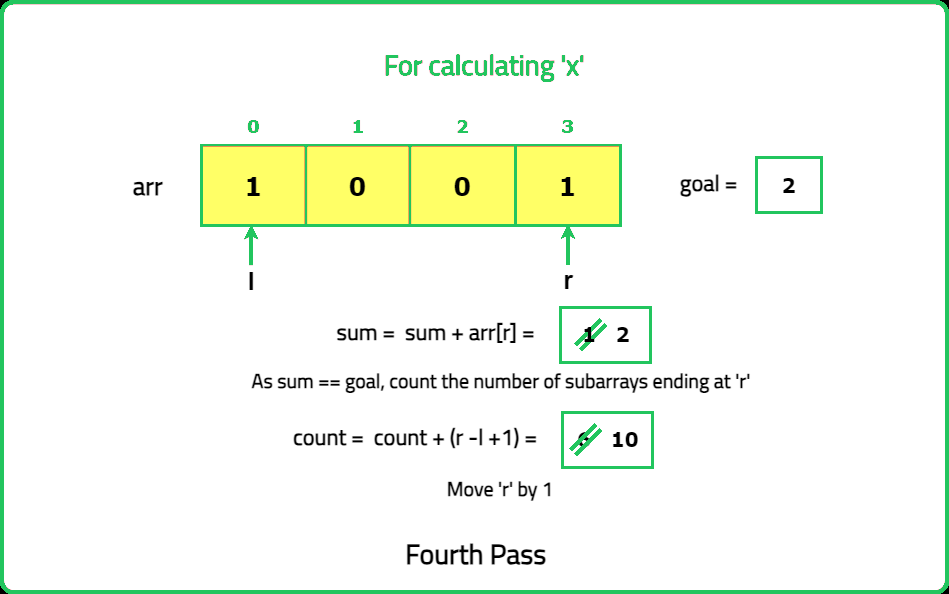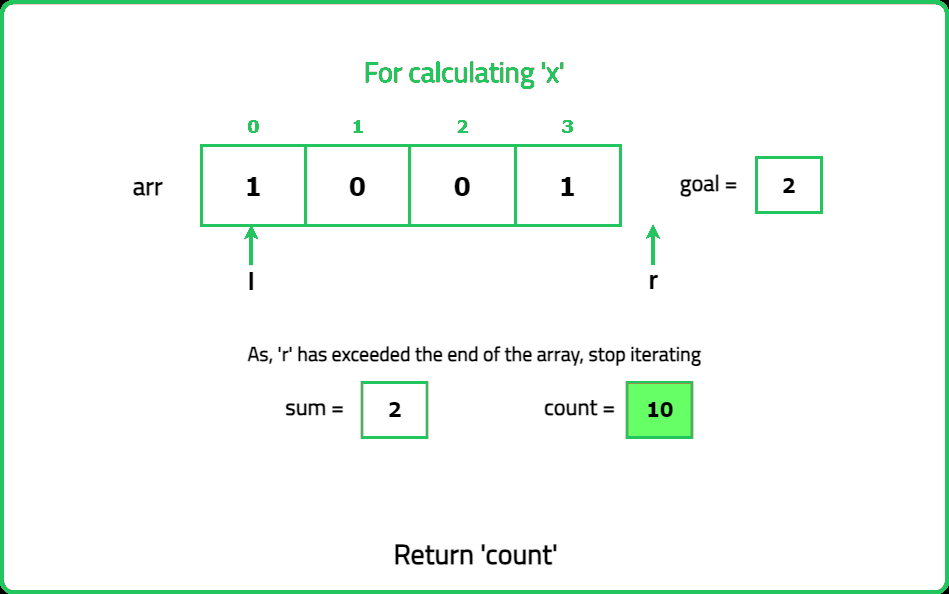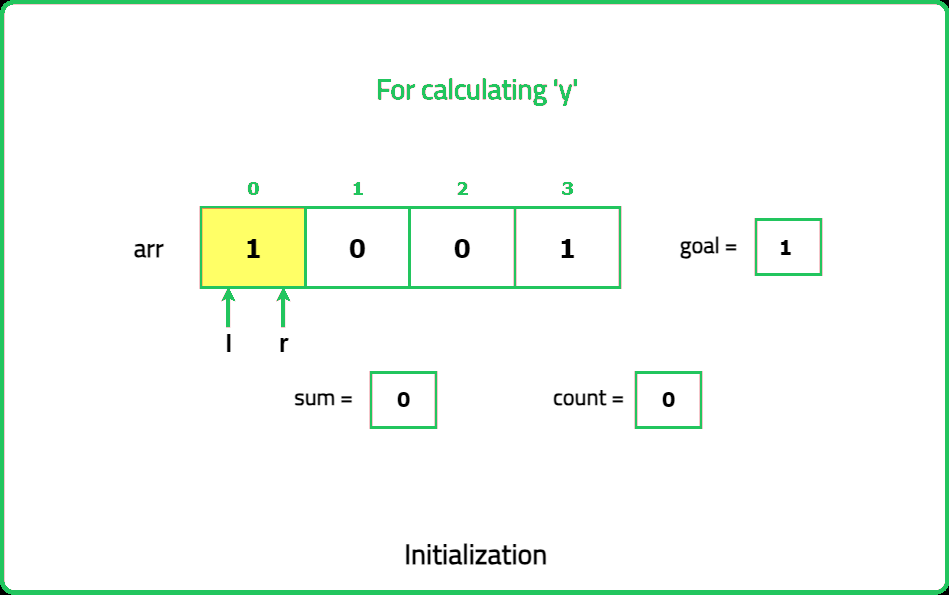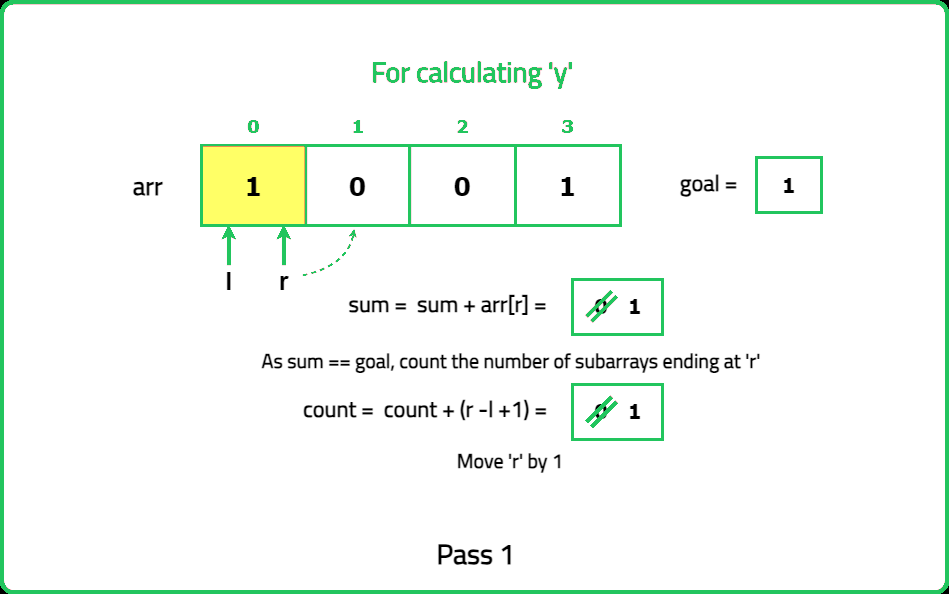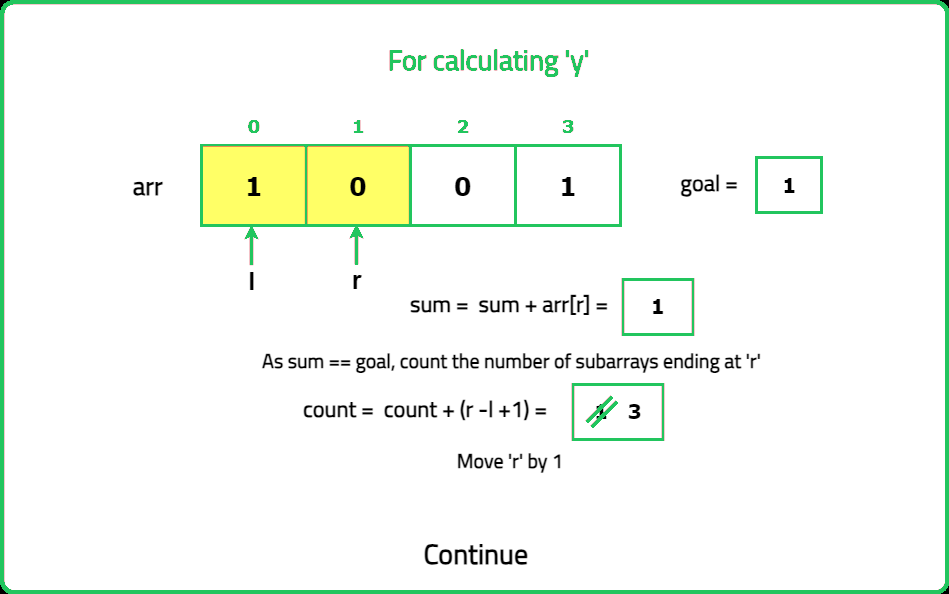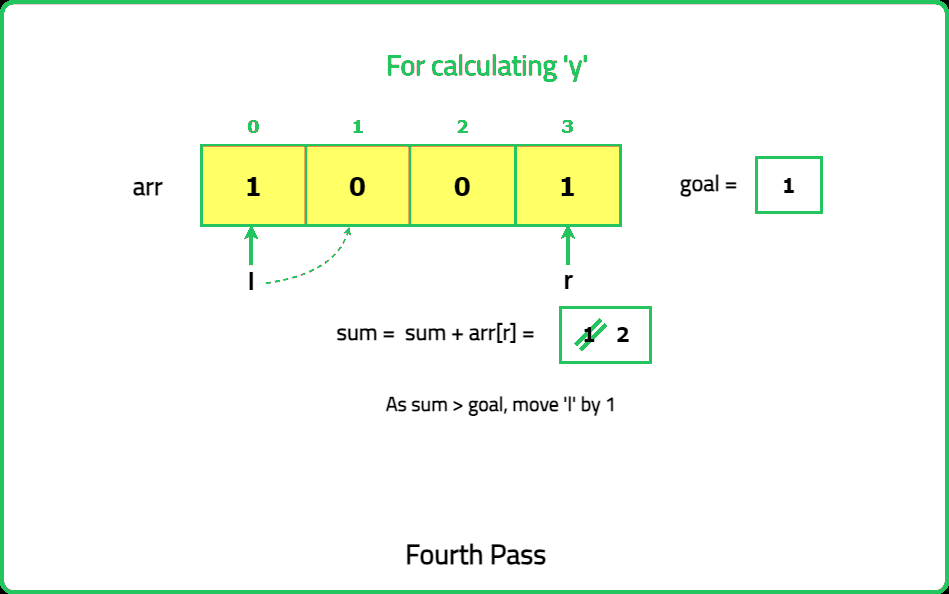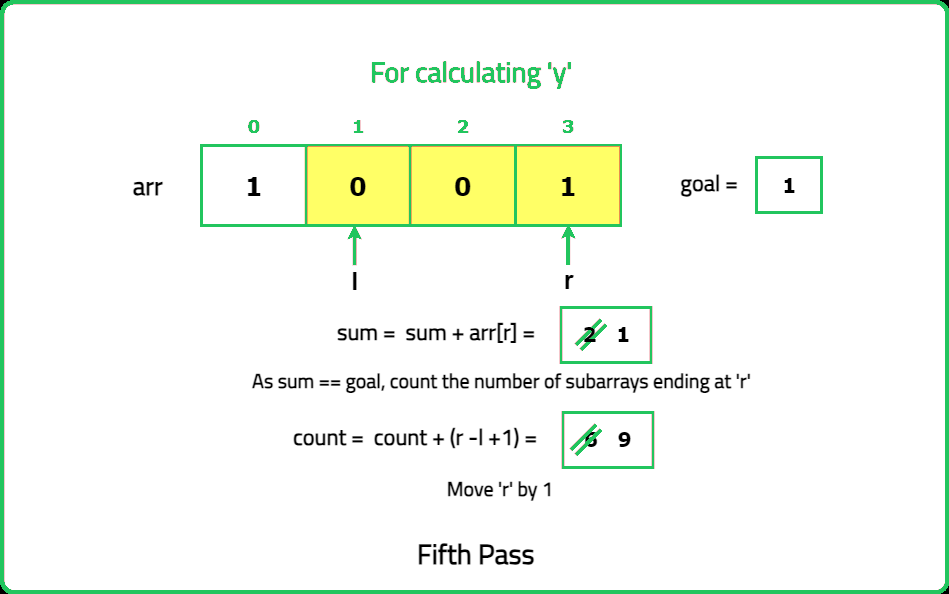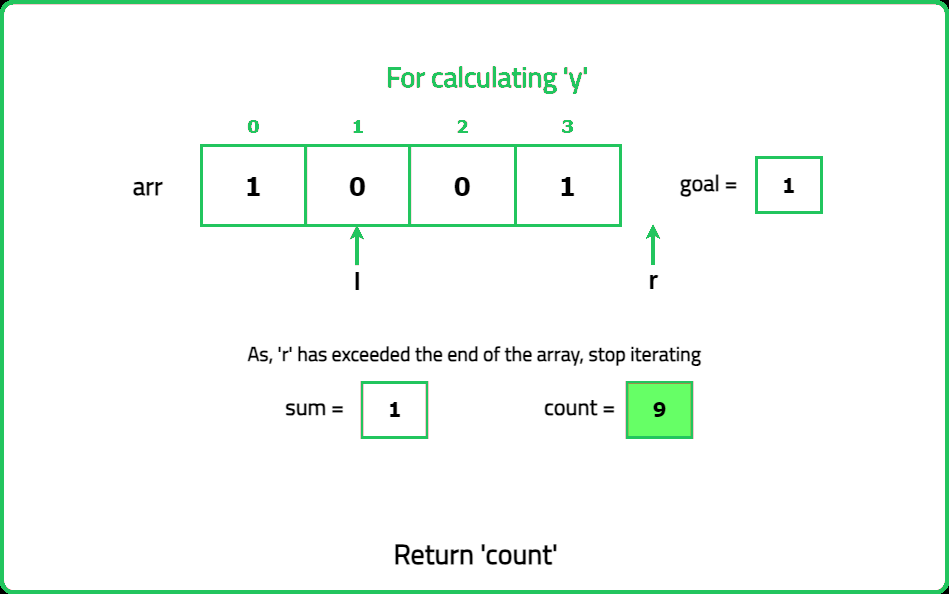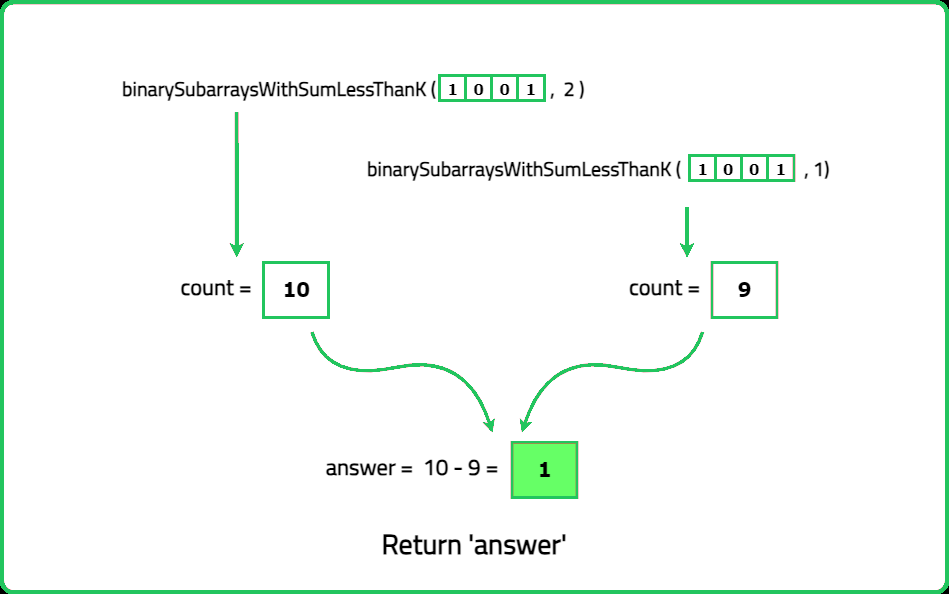Binary Subarrays With Sum
Sliding Window / 2 Pointer
Counting Subarrays / Substrings Problems
Hard
- This programming problem utilizes the concept of subarray sum computations, which are widely used in real-world applications such as image processing, where contiguous blocks of pixels need to be processed or manipulated
- The concept is also used in data analysis applications where sequential data chunks need to be analyzed for a specified sum, like in financial software for calculating running totals in account statements
- As an example, it is used in the implementation of features like "balance within last X transactions"
Given a binary array nums and an integer goal. Return the number of non-empty subarrays with a sum goal.
A subarray is a continuous part of the array.
Constraints
- 1 <= nums.length <= 3*104
- 0 <= goal <= nums.length
- nums consist of only 0 and 1.
Hints
- Use a prefix sum to keep track of the cumulative sum up to each index. Store the count of each prefix sum in a hash map to efficiently determine how many subarrays with a sum equal to the goal exist.
- For a subarray sum to equal the goal, the relationship current_sum−goal=prefix_sum must hold. Use the hash map to check how many times prefix_sum has occurred so far. Add that count to the result.
Company Tags
Stripe
Nutanix
Lyft
Chewy
Red Hat
Roblox
OYO Rooms
Flipkart
Siemens Healthineers
Cerner
Splunk
Morgan Stanley
Shopify
Robinhood
ARM
Bain & Company
Zoho
AMD
Deloitte
McKinsey & Company
HCL Technologies
Databricks
Target
JPMorgan Chase
Epic Games
Google
Microsoft
Amazon
Meta
Apple
Netflix
Adobe

